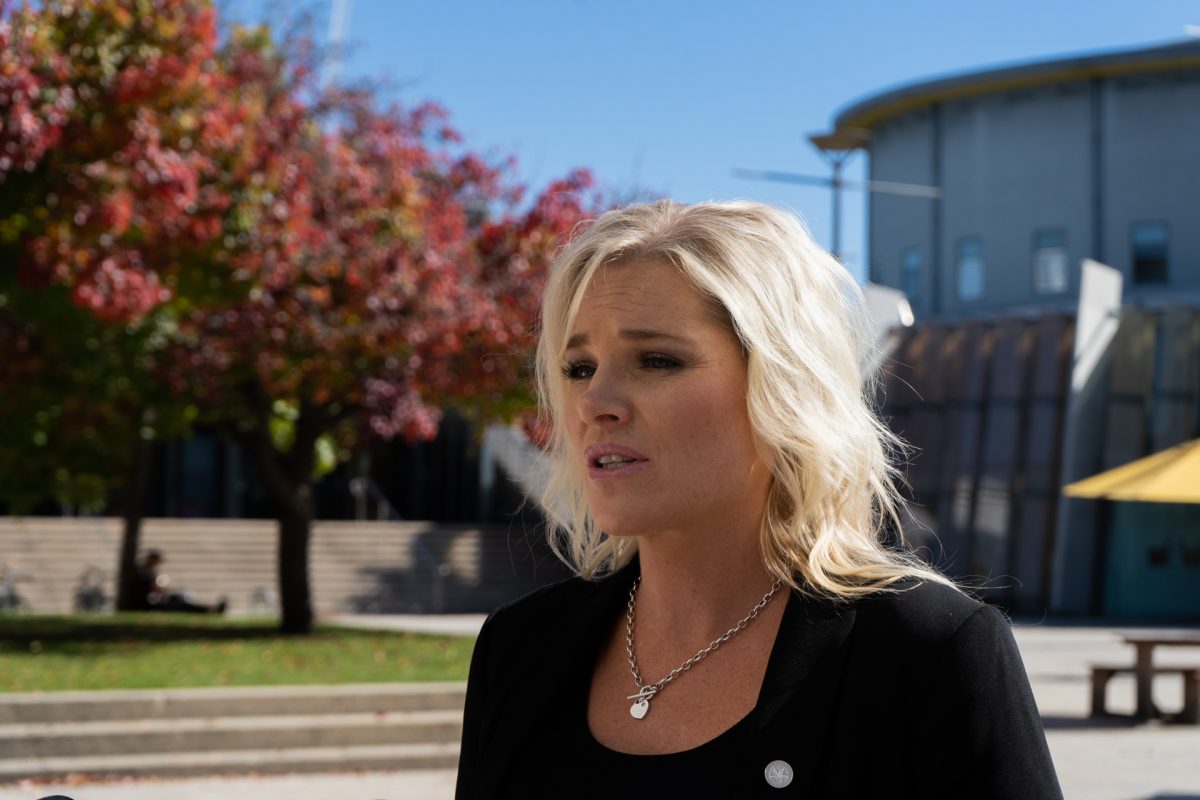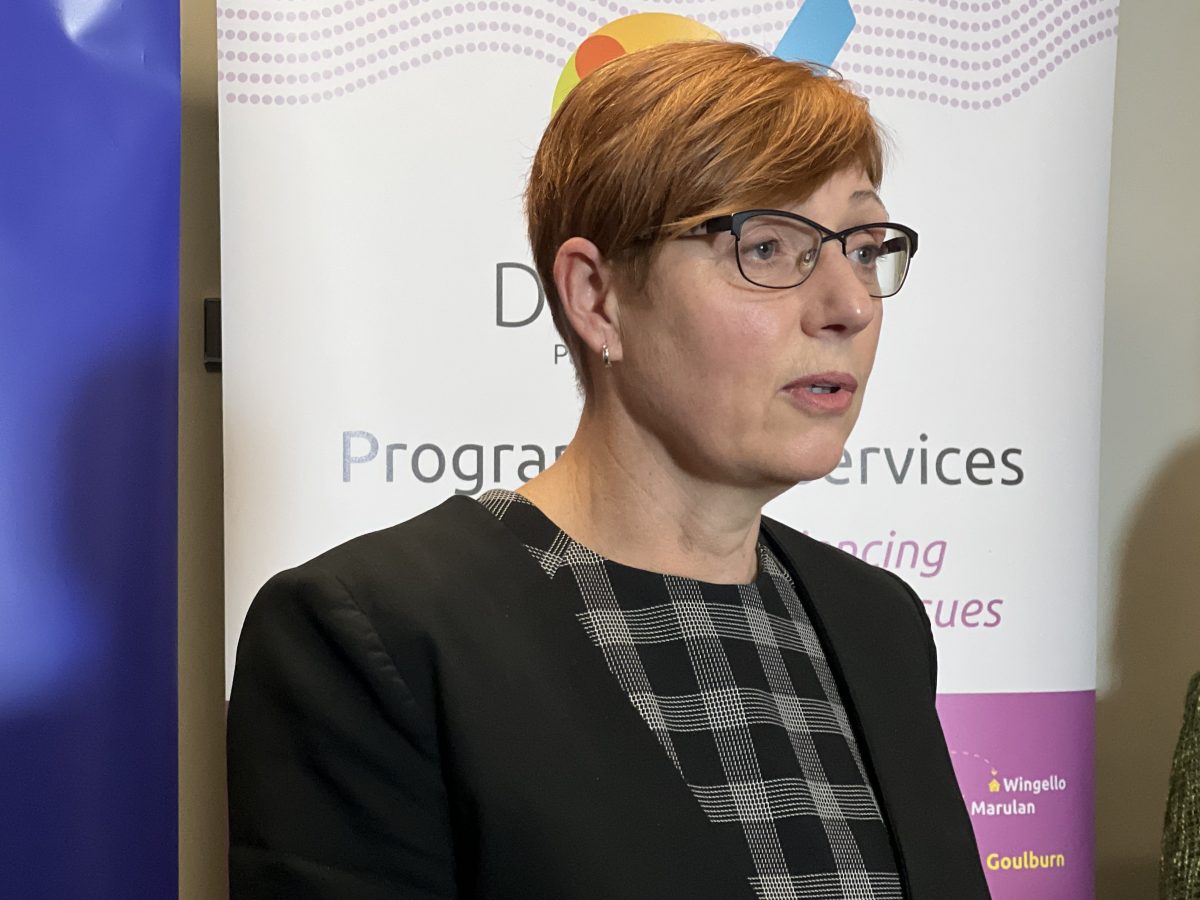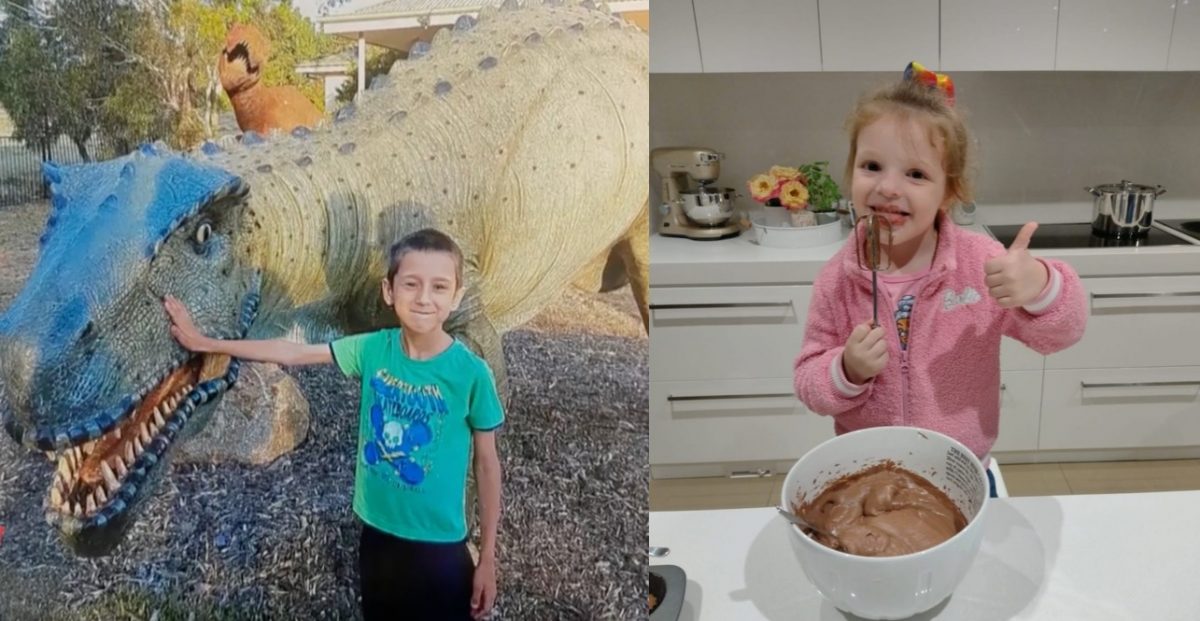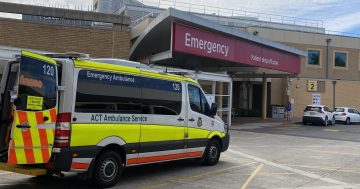
Opposition spokesperson for health Leanne Castley has called on the government to “bolster” the hospital’s early warning and monitoring systems for ill children. Photo: Region.
The Territory government has rejected calls to improve the early warning system for ill children at Canberra Hospital so care can be escalated based on a single vital sign, arguing this system already exists.
These issues have come under intense scrutiny following the highly publicised deaths of 13-year-old Brian Lovelock and five-year-old Rozalia Spadafora.
Rozalia died in July after being admitted to Canberra Hospital with the flu. Her grieving parents have since spoken publicly about their daughter’s treatment and claimed no-one listened to their concerns.
Brian died the following month in a Sydney hospital after contracting COVID-19.
Opposition spokesperson for health Leanne Castley said implementing a new system or “tweaking” the current one would be an “appropriate tribute” to these grieving families.
“This is what Canberrans elect their governments to do,” she said.
Ms Castley urged the government to introduce a new protocol so that the deterioration of one vital sign such as heart rate, blood pressure or temperature would trigger increased patient monitoring.
“We have to do everything we can to stop our children dying in our hospitals,” Ms Castley said.
“Canberra parents and carers need to have complete trust and confidence that their hospital is doing everything it can to keep our kids alive. That is why these measures are so vital.”

Minister for Health Rachel Stephen-Smith said there was already an early warning system in place at the hospital and staff were trained in how to escalate a patient’s treatment. Photo: Lottie Twyford.
Health Minister Rachel Stephen-Smith said there was already an early warning system in place at the hospital which enabled escalation – based on a single vital sign, multiple signs or “when you know as an experienced clinician that something is not right”.
“The care of critically ill children is a priority for our staff and our staff know how to escalate concerns when they have them,” she said.
Ms Stephen-Smith said a best-practice system had not been adopted nationally with different systems in place in NSW and Victoria.
She said the evidence would continue to evolve and be considered.
“One challenge over recent years in this space has been the differing views held by senior clinicians,” Ms Stephen-Smith told the Assembly.

Brian Lovelock died in hospital in Sydney and Rozalia Spadafora died awaiting transport to Sydney. Their deaths have sparked calls for change. Photo: A Current Affair/Supplied.
Australian Medical Association ACT branch president Professor Walter Abhayaratna has aired concerns about the current system, noting NSW and Victoria monitor ill children more frequently than the Territory.
He’s also said these interstate systems have built-in requirements to listen to parents’ concerns.
A spokesperson said the system had already been reviewed in the last year and had been recently accredited, including on the indicator of recognising and responding to acute deterioration.
“[The review] considered [the system’s] ongoing application and effectiveness for identifying and responding to a deteriorating child, particularly in the context of implementing the Digital Health Record, which will go live in November 2022,” the spokesperson said.
“The review included input from a range of clinicians, a review of the national and international literature and alternative early warning systems.”
Ms Castley called on the government to release the review and its response to it. But Ms Stephen-Smith said it was not a formal review and therefore could not be made public.
The deaths of Brian and Rozalia are under investigation by the ACT Coroner.
The ACT Government announced on Wednesday (21 September) an expert panel would be engaged to oversee the finalisation of the Child and Adolescent Clinical Services Plan.




















